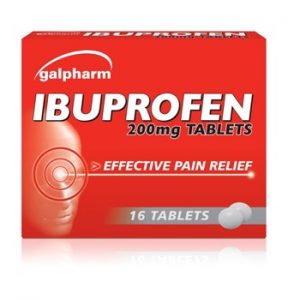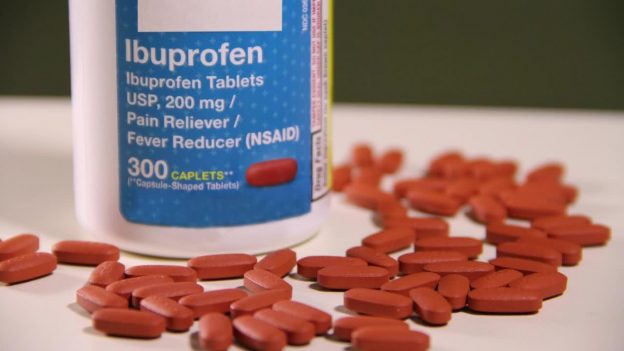While most people tend to think of things like Ibuprofen as harmless over the counter aids for various medical issues, the truth is, they may not be as healthy for us as we think. In truth, they have been shown to actually interfere with natural testosterone production Ibuprofen is in a class of drugs known as NSAIDs, otherwise called non-steroidal anti-inflammatory drugs. They are very important to understand in terms of what they do mechanically and medical because they have a tremendous influence on how we decide to repair and heal our aches and pains. However, these drugs have shown evidence to actually affect our endogenous testosterone production.

Ibuprofen causes testosterone inhibition
This is a big issue for those of you who are serious bodybuilders or other kinds of performance athletes because they typically rely on these NSAIDs to manage the pain and inflammation they often feel when working out and training very hard. While these are typically seen as a quick fix for most pain issues, the truth is that if they are interfering with inflammation, then that means it’s an issue that is going to have to be sorted out in a different manner based on the new findings.
Essentially, the way they interact with the body is in a very negative fashion. According to Danish and French researchers that were looking to see how NSAIDs affect the body, they noticed that the drugs (specifically Ibuprofen) was actually interfering with the gonads and therefore the production of testosterone. This is a major issue because not only are the testicles very key to the development of testosterone in the body, but any permanent damage done to them for physiological or other means is going to result in permanent damage throughout. This is why it’s very important to have an overall idea of whether these drugs are worth using for your personal use, because if they aren’t the long term consequences may not be worth it. Ironically, despite the stigma attached to anabolic drugs and their side effects, it seems that these over the counter drugs may be even more harmful than traditional anabolic steroids.
Over a course of several days, the men were provided with a maximal dosage of over 1200 mg which is the maximum suggested intake for Ibuprofen. Ibuprofen would include most over-the-counter drugs like Advil.. After only taking the pills for a duration of 12-14 days, the side effects already began to take effect. Thes tudy was performed on 31 men and there was a control group that was given a placebo that just contained sugar. WIth the men actually given Ibuprofen, they showed an actual decrease in testosterone production, and because of how quickly the effects were felt, it shows that perhaps the use of these anti-inflammatory agents should be reconsidered.
The Leydig cells and Sertoli cells were the two kinds of cells that were precisely impacted negatively by the intake of Ibuprofen. Even though the end result is hypogonadism, which results in lower testosterone, it isn’t blood level hormonal production that affected. It’s actually because of the body’s compensatory response to the intake of these chemicals, as it begins to try and mask the effects of the surface-level hypogonadism. But until the underlying levels of Ibuprofen are reduced, then the body’s still going to produce an inhibitory response that will simply result in lower testosterone.
While Ibuprofen and other pain relieving over the counter drugs should be perfectly fine, it’s important to consider the level of dosage you’re using. Should you use these drugs, try to keep them contained to acute dosages and even so, try to use them sparingly.
Source: http://www.independent.co.uk/news/health/ibuprofen-testosterone-production-negative-impact-male-fertility-compensated-hypogonadism-research-a8149026.html







